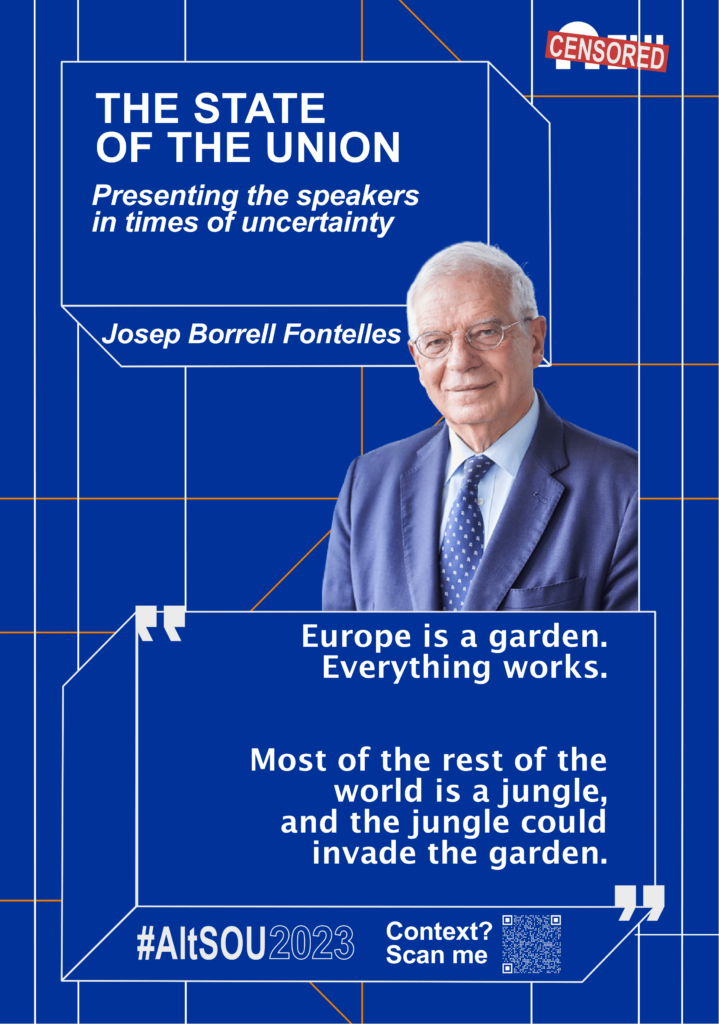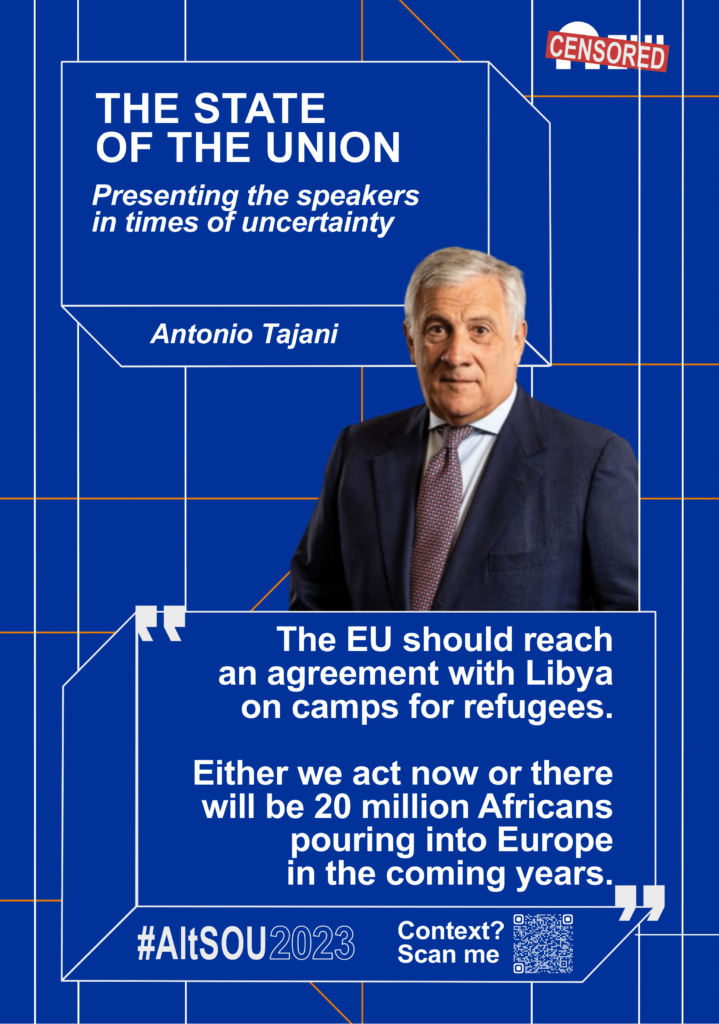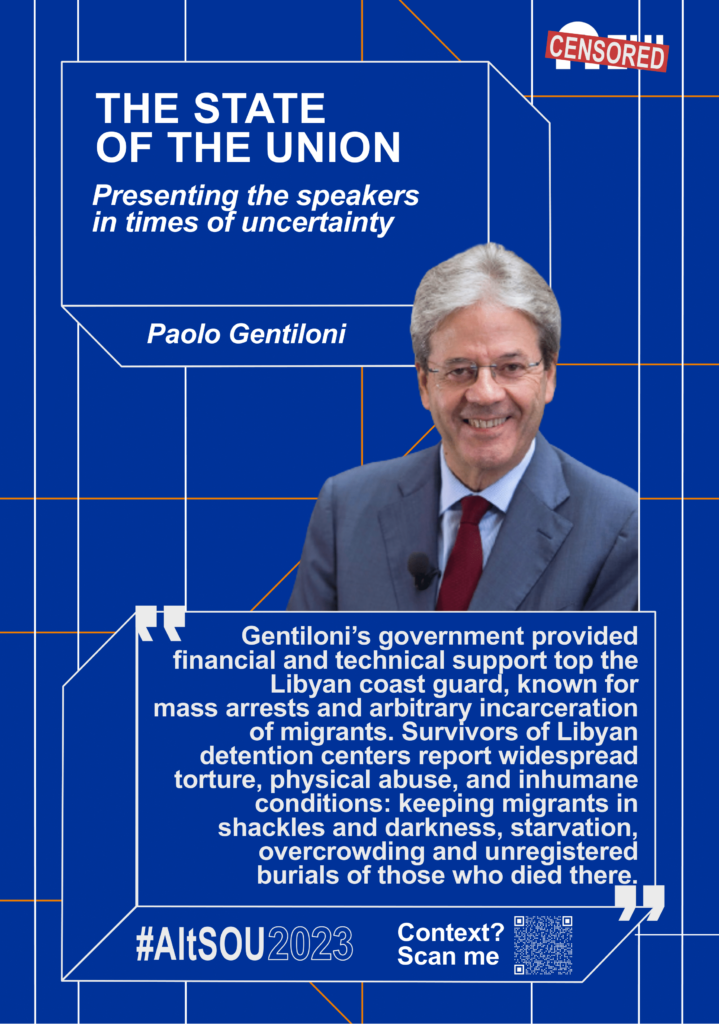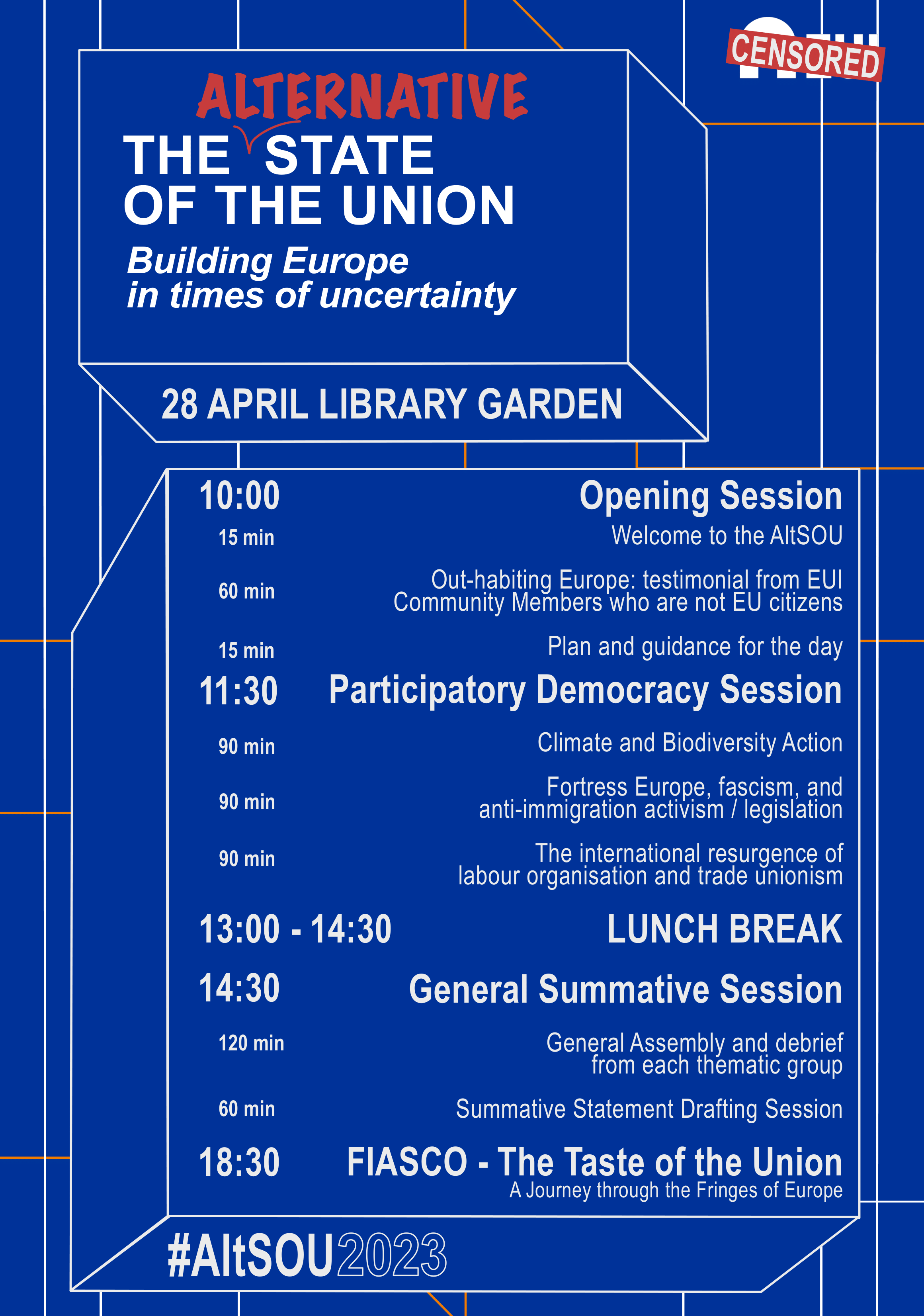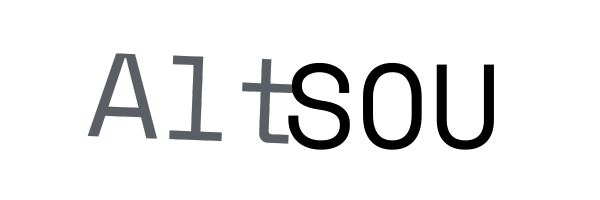AltSOU’23
Statement by PhD researchers at the EUI against the State of the Union on the 4th of May 2023
We, a group of PhD researchers and members of the EUI Researchers’ Union, hereby protest against the State of the Union, an annual conference of Europe’s political elites that is held at our university every year. This is a statement against the substance, spirit and presence of this congress in our workplace. We also present a participatory event that we organised last week as an alternative to this.
What is the purpose of the State of the Union (SOU) and what does it represent to the body of EUI researchers?
The State of the Union is an opaque, top-down conference of European elites. We would like to know what purpose these debates on “how to build Europe” actually serve. What are the concrete outcomes of these debates and how do they influence policy? Why does the EUI, an institution that publicly emphasizes its commitment to diversity and representation, give a platform to guests who represent ideas and narratives that are reprehensible and have colonial roots? We invite the Institute to respond to us with clear reasons, free of empty rhetoric. Can they do so?
As members of the EUI, we protest against the idea of the SOU. Its presence on our campus makes us feel uncomfortable and complicit in the narratives produced by speakers who have publicly voiced racist, sexist, classist and xenophobic opinions. We are left with the impression that, even though this is our workplace, we don’t belong here. We have to endure constant noise and nuisance in our working hours in the days prior to the event, and then we have to undergo a security check just to be able to reach the library or work on our thesis.
We want to be able to produce tangible critiques and alternatives. The EUI constrains us to a straight and narrow path that does not equip us to do that. Events like the SOU reinforce the idea that our role as researchers is not to critically enquire into the realities of our world, but to craft self-serving narratives that address politicians and people in power. The SOU is an expensive event and the EUI is already implementing budget cuts which directly impact researchers and their ability to produce ‘good research’. Why is the SOU here?
What was the purpose of the Alternative State of the Union (AltSOU)?
Our AltSOU began with an ‘unkeynote’ – an event where non-EU participants shared their reflexive experiences of Europe’s presence in their lives. The garden does not look the same from the other side of the fence, and even though each person had a different story to tell, all of them pointed out the hypocrisy of the EU’s rhetoric and its dehumanisation of people with the wrong passport and/or skin colour.
After that, we split into groups divided by theme. We had invited activists and actors from local rights groups such as Firenze Città Aperta, and a solidarity group that supports the workers’ occupation of the ex-GKN factory in Florence. Together, we held group discussions on topics pertinent to the present day. These included: “climate and biodiversity action”; “Fortress Europe, fascism, and anti-immigration activism and legislation”; and, “the international resurgence of labour organisation and trade unionism”. In each of these three groups, we brainstormed topics and ideas for discussion, and wrote them down on handwritten posters now hanging in our researcher-managed social club, Fiasco. After lunch, we listened to a summary of what had been discussed by the other groups, and asked each other more questions: asking for clarifications, whether there were issues we may have omitted, and enumerating the (dis)connections we could find between all that had been raised. Our goal was to arrive at a more reflexive and coherent idea of how to counter, and present an alternative to, the official State of the Union.
What conclusions did we arrive at as a result of the Alternative State of the Union?
We realised that as researchers conditioned by Eurocentric academic research systems, it is difficult for us to think about ‘Europe’ without reproducing politics of exclusion. There were many questions, such as “what makes a European?” and “who makes a European?”, that we had never discussed with people around us. The absence of such discussions plays into the hegemonic narrative that uses “European” as an empty signifier to justify excluding many while granting privileges such as ‘freedom of movement’ to a few. Some of us began to re-evaluate the meaning of concepts such as “citizen”, realising that it could actually be separated from xenophobic anti-immigration discourse and casual exclusionary language. It could even be a good concept!
In other words, we realised that certain ideals and values once had meaning before being overused by a political elite intent on division and powerplay. There can be no truly illuminating conversation on the future of Europe without non-Europeans and those marginalised by and within Europe participating. The non-academic and non-hierarchical nature of the discussion at the AltSOU allowed for a freer flow of discussion and an active debate where ‘diversity’ was not a stance but a reality that was listened to. We refuse to talk about a future where ‘Europe’ is a concept that has been appropriated for divisive and exclusionary purposes.
The EUI should be interested in building its so-called prestige by investing in critical academic research, including non-Eurocentric
perspectives, rather than by inviting the political elite and representatives of private industries to discuss business strategies and Europe’s global leadership in imperialistic terms. It should build upon the potential offered by the most valuable resources it has at its disposal – it’s enthusiastic, curious, and questioning body of researchers and faculty, who have already shown willingness to engage in such a building process. In 2013, the Collettivo Prezzemolo organised the event, “It’s Capitalism, Stupid! The Festival of the Other Europe”. In 2022, the EUI Researchers’ Union was born. These are the first stones we bring to the edifice. There will be others. As researchers, we claim the freedom to redefine our values in critical, egalitarian dialogue with each other, and to build our ideas collaboratively in interaction with other human beings, from a variety of different perspectives and backgrounds.
